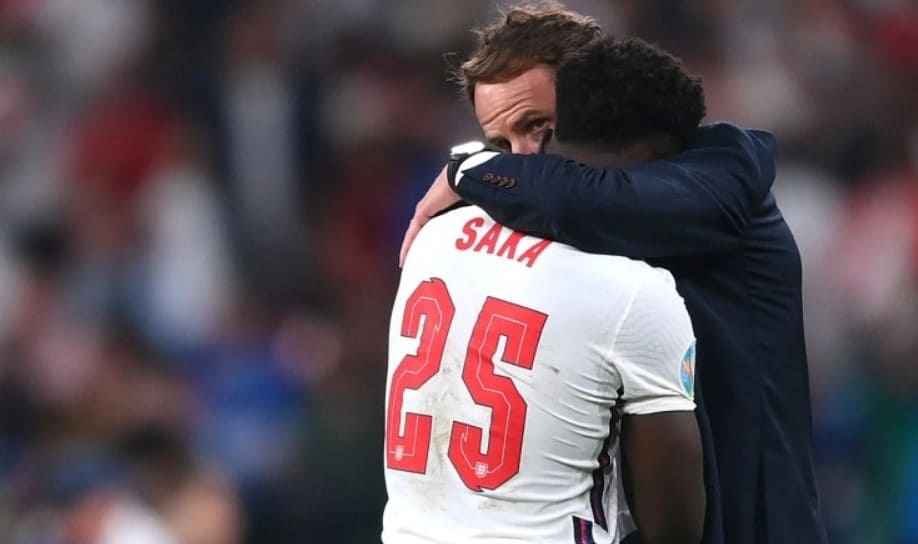A recent report released by FIFA and FIFPRO showed that a good percentage (more than half) of the players who played in the most recent Euro 2020 and AFCON finals suffered abuse online before, during and after the game
Homophobic abuse was a common theme, while racism came in at a close second. FIFA refused to exactly release names but it has been revealed that Arsenal’s Bukayo Saka and Manchester United’s Marcus Rashford were the most targeted players. This comes after both Premier League stars missed crucial penalties as England lost in the final to Italy at Wembley last July.
In both tournaments, a more shocking revelation was the fact that a good portion of the abuse came from the home nation of the targeted stars, with 38% coming from the UK and 19% coming from Egypt after they also lost to Senegal via penalties in the AFCON final back in February.
In response to the report, FIFA and FIFPRO say they will launch a moderation tool across men’s and women’s football during the World Cup in November. This will help detect hate speech published on social media and once recognized, that comment will be hidden from the recipient as well as their followers.
FIFA condemns homophobic abuse targeted at players
Speaking particularly on the matter, FIFA released a statement to show their intent as they condemned the homophobic abuse from fans.
FIFA president Gianni Infantino said: “Our duty is to protect football, and that starts with the players who bring so much joy and happiness to all of us by their exploits on the field of play.
“Unfortunately, there is a trend developing where a percentage of posts on social media channels directed towards players, coaches, match officials and the teams themselves is not acceptable, and this form of discrimination – like any form of discrimination – has no place in football.
“With the FIFA World Cup Qatar 2022 and FIFA World Cup Australia and New Zealand 2023 on the horizon, FIFA and FIFPRO recognize it is important to make a stand and to include what is monitored on social media with what is already being monitored in the stadiums.
“We want our actions to speak louder than our words and that is why we are taking concrete measures to tackle the problem directly.”
Over 400,000 social media posts across Instagram and Twitter were used as a case study, alongside 541 cases of direct discrimination and other types of abuse which were discovered.
Asides the proposed moderation tool, mental and educational health advice will be given to players at FIFA tournaments in 2022 and 2023, to help them deal with online abuse.




